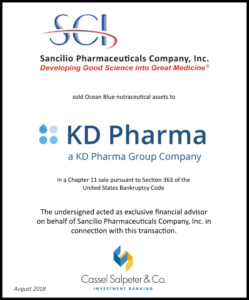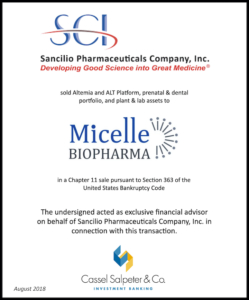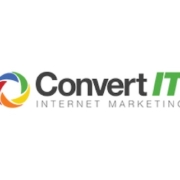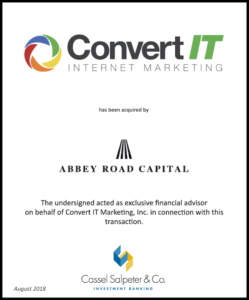Do you think your business needs a research and development department? That may be a sign that it’s time you started one—or at least started seriously thinking about it.
After all, if your company sells products and services, those products and services aren’t going to materialize out of thin air. You may need to devote money, time and resources to inventing them.
So if you’re exploring the idea of starting an R&D department, you may want to consider trying these steps.
1. Think about the size and scope of your research and development department.
According to brand consultant Peter Friederichsen, having some sort of research and development department can be beneficial. (Friederichsen is also partner at the Blake Project, a brand strategy consultancy headquartered in Westlake Village, California.)
“[Management consultant and author] Peter Drucker once observed that the only purpose of business is to create a customer,” he says, “therefore the two most important functions a business has are marketing and innovation. The rest is just overhead. So every business needs R&D to some degree in order to continue to innovate.”
Research and development can certainly be vital to the health of some companies. These companies use their departments to create products and services that can end up generating millions, if not more, in new revenue. If it wasn’t so important, companies wouldn’t invest as much as they do in R&D.
According to the data gathered by financial research company FactSet and supplied by a FactSet representative, Amazon.com spent the most on R&D in 2017: $16.1 billion. Plenty of other firms are spending billions, too: Intel spent $12.7 billion on R&D, while Microsoft spent $12.3, Johnson & Johnson, $9 billion and Ford, $7 billion.
If you own a small accounting firm staffed with three accountants, you might not be in the position to hire another two or three people to run a research and development team, much less spend billions on R&D. But you can still could devote some time and money to R&D.
There are plenty of informal ways of having a research and development team.
In the example of the small accounting firm, that can look like:
- staying on top of customer trends, by, say, attending an industry conference once a year.
- discussing with your employees once a month how customers and trends are changing.
- collecting and organizing feedback from your customers.
“Every business should consider R&D,” says James Cassel, co-founder of the investment banking firm Cassel Salpeter, based out of Miami. “Even a company like a restaurant might want to develop new recipes or technology to better operate, innovate or simply cut its costs.”
2. Ask yourself how much funding you want to devote to your R&D.
“Different categories have different needs for R&D,” Friederichsen says. “Obviously electronics, technology or pharmaceuticals will always have a greater need than many other categories and will spend more against that in their business plan.”
Marketing can be a form of research and development, if you’re using marketing dollars to learn more about your consumer (think: focus groups).
“Small companies should allocate at least 1 to 2 percent of their marketing budget against ongoing research to their target, to make sure they stay on target and are aware of and addressing changing needs of their customers,” he suggests.
But there really isn’t a formula to help you determine how much your company should spend on research and development.
“Every business is different, and different industries can afford varying amounts,” Cassel says. “There are no given set of numbers that will fit every circumstance as to how many people or how much money a company should spend towards R&D.
“The important point,” he continues, “is to spend on it and not be left behind. Companies need to innovate, and they shouldn’t need to go outside the company to buy or license everything they need.”
3. Check with your tax accountant.
You may be eligible for the research and development tax credit, also known as the research and experimentation tax credit, which has been around since 1981.
According to the HR technology and payroll firm Gusto, which analyzed over 60,000 businesses from June 15, 2017 to April 16, 2018, the average federal R&D tax credit claim for Gusto customers was $31,890.
The same report also noted that while tech companies are the top claimants of the federal R&D tax credit on Gusto’s platform, numerous non-tech firms also routinely claim the credit, such as furniture stores and wholesalers.
Interested in the credit, but aren’t sure you qualify? Take heart: You don’t need an official research and development department to get the credit.
“The research and experimentation tax credit is a general business tax credit for companies that spend resources on research and development costs in the United States,” says Paul Joseph, a certified public accountant at Joseph & Joseph Tax and Payroll in Williamston, Michigan.
“There are a number of exclusions to the research and development credit and each individual company may qualify for the general tax credit,” he continues, “however, you should consult with a tax professional to determine whether or not an exclusion applies.”
That’s a good idea. There’s a special formula involved to come up with the dollar amount for the credit, which includes wages, cost of supplies, your overhead and other expenses. Unless you own a tax accounting firm and are an expert on these sorts of things, you may want a tax accountant or software to help guide your credit claim.
4. Make sure your R&D’s goals are identifiable and measurable.
As Nancy Shenker, CEO of theONswitch, a marketing firm in Scottsdale, Arizona, says, “You need to define what research means for your organization. Understanding and tracking trends or competition? Analyzing your current customer base?… Knowing what questions you’re asking, and why, is the first and most important step.”
Whatever your goals are, it’s important to make sure the people running research and development have a mission. It’s easy for a team to lose focus when a lot of time is spent brainstorming and being told, “Hey, if you fail, that’s okay, because it’s all part of the experimentation process.”
Don’t misunderstand: All of that encouragement—and being fine with ideas flopping—can be helpful. After all, a research and development team needs to take creative risks to come up with useful ideas; failure and a lot of dead ends and false starts are often part of the innovation process.
That said…”Hold R&D as accountable as every other department,” says Jan Bednar, CEO of ShipMonk, a fulfillment and shipping company based in Deerfield Beach, Florida.
“Obviously, R&D has different KPIs [key performance indicators] than your marketing, sales or customer support departments, but the team still updates me on their progress weekly along with every other department,” Bednar says. “This way, we can eliminate navel-gazing and ensure that we are moving forward towards the path to long-term solutions.”
It’s all too easy to imagine your research and development department as a place where money and time go to die. But as you saw earlier, some of the biggest and most successful companies generally have people working on R&D. If you’re able to create a successful research and development department, someday you may wonder how your company managed without one.
Click here to view the original article.











